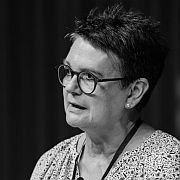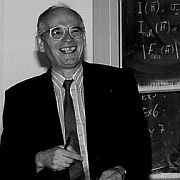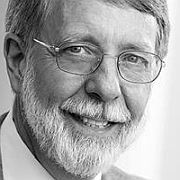Wittgenstein Lectures
The Wittgenstein Lectures were inaugurated 1987. It was one of the first steps towards internationalization of teaching at the University. Traditionally we invite a renowned philosopher to hold a week of lectures and colloquia on themes central to our Philosophy & Economics programme.
All philosophy teaching stops for a week and the first lecture is usually followed by a reception. At the end of the series there is a short exam. Students get 2 ECTS for module CI1 (formerly V1). Sometimes we offer advanced seminar courses on the work of the Wittgenstein Lecturer.
The Wittgenstein Lectures are open to the public and all members of the University.

Wittgenstein Lectures 2026
Kevin Zollman (Carnegie Mellon University):
Connected Intelligence: How our Social Ties generate Knowledge
June 15 - June 19 2026 [Time-table tba]
Abstract: tba

2025
Automating the Economic Style of Reasoning
Diane Coyle
University of Cambridge
Abstract: Economic reasoning has shaped modern societies for more than half a century, but late 20th century growth has given way to 21st century discontent with consequences of this public philosophical order - consequences such as environmental crisis, inequality, and economic stagnation. At the same time the advent of public data-driven decision-making using machine learning and AI is automating the economic style of reasoning. Some see the technological tools as holding out the promise of a return to expansive economic progress. This series of lectures will set out these tensions of the moment, and discuss the implications of automated public decisions for the understanding of social welfare.
These Wittgenstein Lectures were accompanied by a panel discussion on "The Future of Philosophy and Economics in the Age of AI" which may still be viewed online here: https://mms.uni-bayreuth.de/Panopto/Pages/Viewer.aspx?id=f160e889-fd46-4808-b4bb-b30800ea79f0&query=3b1f27c4-11d3-48f6-ab9f-b306006e847e

2024
Addressing Structural Injustice, Changing Social Systems

2023
The Normative Significance of Axioloy
Hilary Greaves
University of Oxford

2022
Labor's Self-Liberation from Capital
A. J. Julius
University of California, Los Angeles (UCLA)

2021
The Grounds of Political Legitimacy
Fabienne Peter
Warwick

2020
Network Epistemology: What Economics and Philosophy Tell Us About Learning in Groups (unfortunately, this event had to be cancelled due to the corona pandemic)
Kevin Zollman
Carnegie Mellon University

2019
Blaming and Forgiving - The Work of Morality
Miranda Fricker
City University of New York Graduate Center

2018
Climate Change and Obligations for Future Generations
Joseph Heath
University of Toronto

2017
Markets and Morality
Debra Satz
Marta Sutton Weeks Professor of Ethics in Society (Stanford University)

2016
Preference, Prediction and Policy
Daniel M. Hausman
Herbert A. Simon and Hilldale Professor University of Wisconsin-Madison

2015
Left Libertarianism: Promise and Problems
Peter Vallentyne
Kline Chair in Philosophy University of Missouri-Columbia

2014
The Ethics and Economics of Climate Change
John Broome
Emeritus White’s Professor of Moral Philosophy, University of Oxford

2013
The Revolution in Just War Theory
Jeff McMahan
White’s Professor of Moral Philosophy, University of Oxford

2012
The Robust Demands of the Good
Philip Pettit
Laurance S. Rockefeller University Professor of Politics
and Human Values at Princeton University

2011
Ethics and Public Policy
Jonathan Wolff
Professor of Political Philosophy, University College London

2010
Values, Norms, Decisions
Wlodek Rabinowicz
Professor (emeritus) of Philosophy, Lund University

2009
Collective Actions and the Commons: What Have We Learned?
Elinor Ostrom
Professor (emeritus) of Political Science, Indiana University
(Nobel Prize in Economics, 2009; †2012)

2008
Philosophy Amid the Darkness of These Times
Jonathan Glover
Professor of Philosophy, King's College, University of London

2007
From Rankings to Reasons
Michael Smith
McCosh Professor of Philosophy, Princeton University

2006
The Theory of (Un)Bounded Rationality: Games, Experiments and Evolution
Werner Güth
Max Planck Institute of Economics, Jena

2005
Evolution, Learning and the Social Contract
Brian Skyrms
Distinguished Professor of Logic and Philosophy of Science and Economics at the University of California, Irvine

2004
Knowledge and Representation
Keith Lehrer
Arizona

2003
David Hume as a Contemporary Political Theorist
Russell Hardin†
Stanford

2002
Morality Meets Economics
Robert Frank
Ithaca

2001
The Economy of Virtue and Esteem
Geoffrey Brennan†
Canberra

2000
Der Wiener Kreis im Kontext

1999
Liberty, Property, and the Legitimacy of the State
Anthony de Jasay†
Oxford, Paris

1998
Kritischer Rationalismus
Hans Albert†
Heidelberg

1997
The Mottled World. Lectures on the Unity of Science
Nancy Cartwright
London, LSE

1996
Game Theory and the Social Contract
Ken Binmore
London, University College

1995
Public Practical Reason
Gerald J. Postema
North Carolina, Chapel Hill

1994
Hume and Modern Philosophy
Richard M. Sainsbury
Austin, Texas

